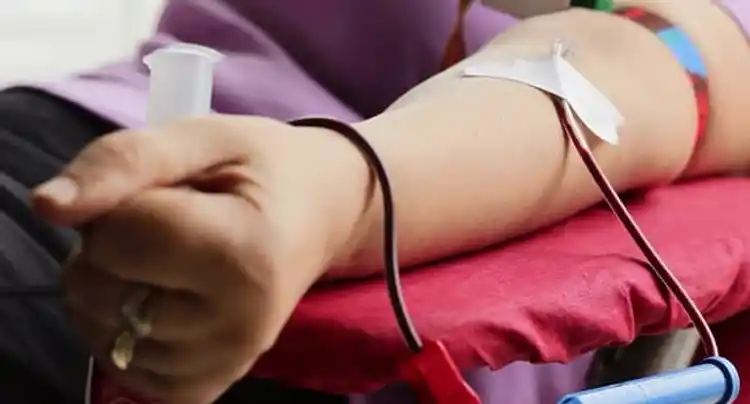Polycythemia Vera Treatments

Hide Video Transcript
Video Transcript
CATHERINE M. BROOME: Polycythemia vera is a blood disorder that is associated with an increase in production of the red blood cells. But white blood cells and platelets may also be affected. While we don't have currently a cure, life expectancy with polycythemia vera should be no different from the average person.
Therapeutic intervention can involve anything as simple as taking an aspirin a day, to medications designed to decrease the production of those blood cells. Many patients are managed on a program of scheduled phlebotomies or blood removal in order to maintain the appropriate ratio between the liquid and the solid portions of their blood.
Side effects from having blood taken off intermittently could be a little bit of fatigue, lightheadedness, or feeling a little dizzy right after a phlebotomy to try to avoid those types of symptoms. Come to the phlebotomy very well hydrated and having eaten something.
You don't want to do anything in your life that's going to also increase your body's desire to make more red blood cells. So we advise our patients not to smoke cigarettes. Avoid iron supplementation. We advise against travel to particularly high altitudes.
Maintaining hydration is also very important. It helps our whole system function better. If polycythemia vera is diagnosed and managed properly, you really should have very few symptoms from it. It is a disorder that can be managed very successfully over many years.
Therapeutic intervention can involve anything as simple as taking an aspirin a day, to medications designed to decrease the production of those blood cells. Many patients are managed on a program of scheduled phlebotomies or blood removal in order to maintain the appropriate ratio between the liquid and the solid portions of their blood.
Side effects from having blood taken off intermittently could be a little bit of fatigue, lightheadedness, or feeling a little dizzy right after a phlebotomy to try to avoid those types of symptoms. Come to the phlebotomy very well hydrated and having eaten something.
You don't want to do anything in your life that's going to also increase your body's desire to make more red blood cells. So we advise our patients not to smoke cigarettes. Avoid iron supplementation. We advise against travel to particularly high altitudes.
Maintaining hydration is also very important. It helps our whole system function better. If polycythemia vera is diagnosed and managed properly, you really should have very few symptoms from it. It is a disorder that can be managed very successfully over many years.
